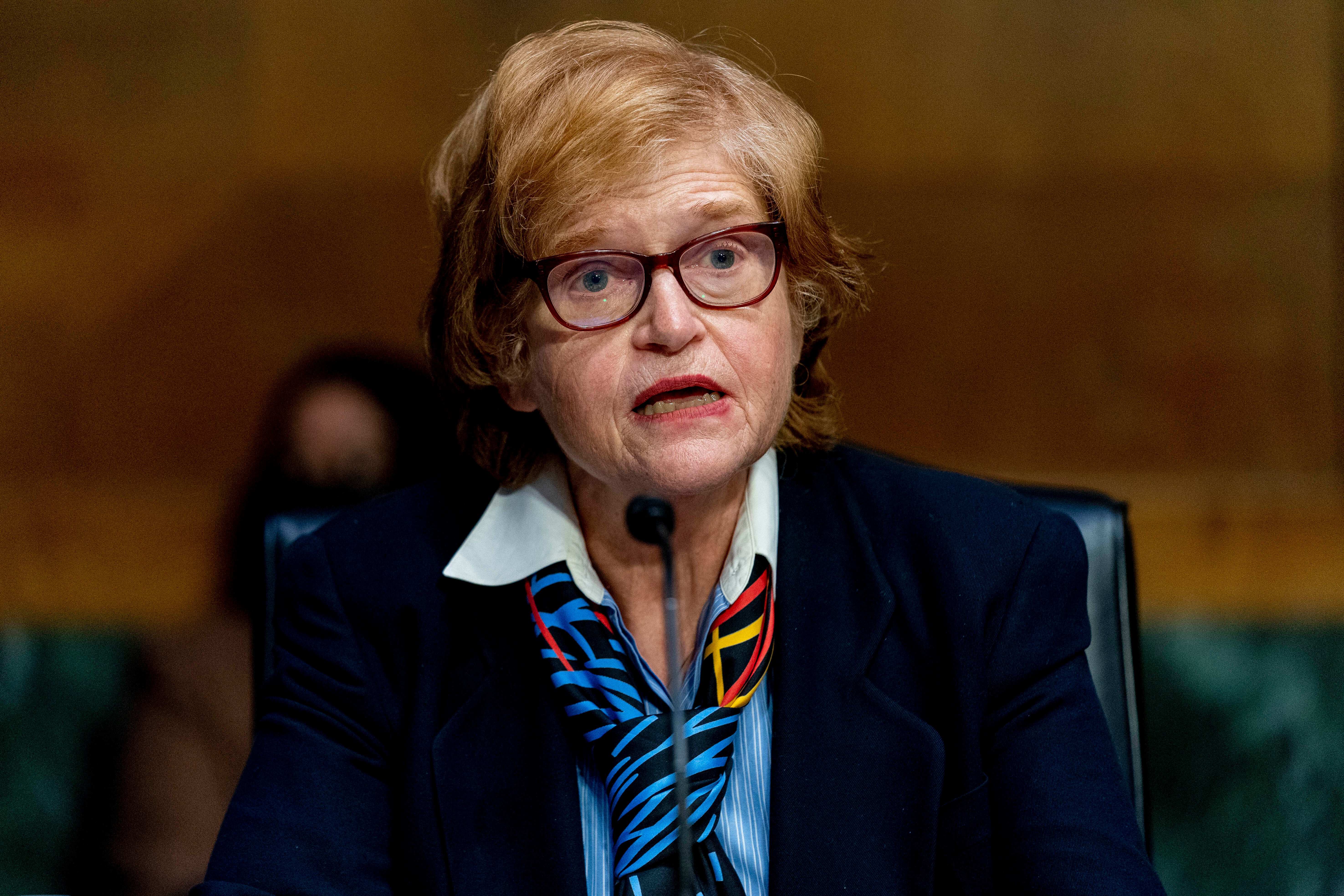Biden's pick to combat antisemitism finally gets hearing
President Joe Biden’s pick to monitor and combat prejudice against Jews around the world finally got her day before the Senate committee that will evaluate her nomination

Describing herself as an “equal-opportunity foe of antisemitism,” President Joe Biden s pick to monitor and combat prejudice against Jews around the world finally got her day before the Senate committee that will evaluate her nomination.
Biden had nominated Deborah Lipstadt to lead the State Department’s office for combating antisemitism in late July. A hostage standoff last month at a Texas synagogue brought about new calls for the Senate to act on her nomination.
“We’ve seen a spike of antisemitism here at home and abroad, making this position exceedingly important," Senate Majority Leader Chuck Schumer D-N.Y. said Tuesday.
But Lipstadt's nomination languished in the Senate last year after she criticized comments from Sen. Ron Johnson R-Wis., who had said he wasn’t worried about the predominately white insurrectionists at the U.S. Capitol, but might have been if they had been Black Lives Matter protesters.
Lipstadt tweeted the article last March with his comments and said, “This is white supremacy/nationalism. Pure and simple.”
Johnson challenged Lipstadt on her remarks during Tuesday's hearing, saying it was about as serious and vile an accusation as one can hurl against another person. At another point, he accused her of engaging in “malicious poison.”
“You've never met me. You don't know what's in my heart. Do you?" he said.
Lipstadt said her tweet was not nuanced and that she would not conduct diplomacy by tweet. She emphasized her criticism was of his comments, “I'm sorry if I made it in a way that it could be assumed to be ... of the person personally."
Johnson quickly interjected that he appreciated her apology and accepted it and he said it was more than the chairman of the committee, Sen. Bob Menendez, D-N.J., has done. Still, he said he could not support her confirmation. “You're just simply not qualified." Johnson said.
Lipstadt, a professor at Emory University, has taught about antisemitism for 40 years and designed exhibits at the United States Holocaust Memorial Museum. Last year, she served as an expert witness in the Charlottesville civil suit against the organizers of a demonstration four years earlier that turned deadly. Former President George W. Bush asked her to represent the White House at the 60th anniversary of the liberation of Auschwitz.
When Johnson made his initial remarks about the Capitol protesters, he explained that because many of the BLM protesters were white, his comments were not racist.
But Menendez said he also had found Johnson's remarks about Jan. 6th “problematic." He said some of the rioters that day wore Nazi symbolism.
“Maybe the senator wasn't afraid for his life, but every Jewish person in the Capitol certainly had reason to be concerned for their lives," Menendez said.
Sen. Jim Risch, the ranking Republican on the committee, said that while there has been “some grumbling" about the pace of the confirmation process for Lipstadt, anytime a nominee has made public remarks about a member of the committee, “it always draws and should draw more scrutiny and more vetting than usual."
In a nod to concerns voiced by Republicans about the nonpartisan nature of the job, Lipstadt said “Jew-hatred can be found across the entire political spectrum."
“I am an equal-opportunity foe of antisemitism," she said. “Unless one is willing to fight Jew-hatred wherever one finds it, one should not be a nominee for this position."
Bookmark popover
Removed from bookmarks